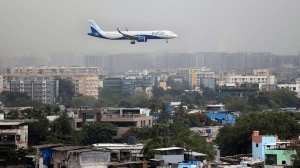Stay updated with the latest - Click here to follow us on Instagram
Researchers at IISc, QBI develop model to predict how antibody responses determine efficacy of Covid vaccines
The model developed by the team was able to predict the level of protection that would be conferred after vaccination, based on the antibody ‘profile’ of the individual.
 IISC Bengaluru. (File)
IISC Bengaluru. (File)Researchers at the Indian Institute of Science (IISc) and Queensland Brain Institute (QBI) in Australia have developed a mathematical model that predicts how antibodies generated by Covid-19 vaccines confer protection against symptomatic infections and to what extent.
The study was published in the journal Nature Computational Science.
The researchers claim that predicting the efficacy of Covid-19 vaccines would aid further development of vaccine and usage strategies. In order to achieve this, they developed a multi-scale mathematical model that proposes mechanistic links between Covid-19 vaccine efficacies and the neutralising antibody (NAb) responses they elicit.
Several vaccine candidates have conferred a high degree of protection, with some reducing the number of symptomatic infections by over 95% in clinical trials. But one of the questions raised is how the extent of the protection is determined.
The researchers first analysed over 80 different neutralising antibodies reported to be generated after vaccination against the surface spike protein of SARS-CoV-2, the virus that causes Covid-19. These antibodies are typically present in the blood for months and prevent virus entry by blocking the spike protein. The researchers hypothesised that these 80 antibodies constitute a ‘landscape’ or ‘shape space’, and each individual produces a unique ‘profile’ of antibodies which is a small, random subset of this landscape.
The team then developed a mathematical model to simulate infections in a virtual patient population of about 3,500 people with different antibody profiles, and to predict how many of them would be protected from symptomatic infection following vaccination.
“The reason predicting vaccine efficacies has been hard is that the processes involved are complex and operate at many interconnected levels. Vaccines trigger a number of different antibodies, each affecting virus growth in the body differently. This, in turn, affects the dynamics of the infection and the severity of the associated symptoms. Further, different individuals generate different collections of antibodies and in different amounts,” said Narendra Dixit, Professor at the Department of Chemical Engineering, IISc, and senior author of the study.
“This diversity of antibody responses was a challenge to comprehend and quantify,” added Pranesh Padmanabhan, Research Fellow at QBI, the first author of the study.
The model developed by the team was able to predict the level of protection that would be conferred after vaccination, based on the antibody ‘profile’ of the individual, and the predictions were found to closely match efficacies reported in clinical trials for all the major approved vaccines.
The researchers also observed that vaccine efficacy was linked to a readily measurable metric called antibody neutralisation titre. This opens up the possibility of using such models to test future vaccines for their efficacies before elaborate clinical trials are launched, the authors suggest.
Dixit, however, cautioned that the study is based on current vaccines which have been designed to work on the original SARS-CoV-2 strain. “Our formalism is yet to be applied to the new variants, including Omicron, where other arms of the immune system and not just antibodies appear to be contributing to vaccine efficacies. Studies are ongoing to address this,” he said.







